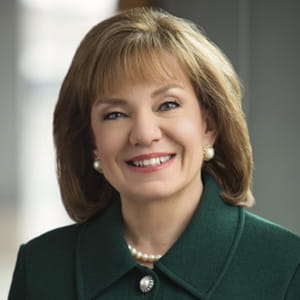New Structure and Expanded Role for Drexel University Online
As Drexel’s physical campus continues to evolve — with state-of-the-art facilities and a vibrant innovation neighborhood — so does its virtual campus.
Well-known as a “pioneer” in online education, Drexel launched its first web-enabled course in 1996, followed closely by its first fully online program — an MS in library science.
Today, Drexel’s award-winning virtual campus is home to 5,264 students (from across the country and around the world) enrolled in 120 online degree and certificate programs. What’s more, in 2014, 23 percent of all Drexel degrees and certificates that were taught in fall 2014 were taught online, and 33 percent of all graduate degrees and certificates were taught online that fall.
Not surprisingly, the University continues to view technology-enhanced learning as essential to its future, having formally identified online and hybrid education as one of four areas for strategic growth and development. To further enhance that potential, Drexel recently transitioned its wholly owned, for-profit subsidiary, Drexel eLearning Inc., to a wholly owned, non-profit “division” of the University — Drexel University Online (or DUO).
“This new structure is a unique model among institutions of higher education in the United States,” said Drexel President John A. Fry. “So it is definitely in line with our University’s longstanding history of innovation and its trailblazing efforts in online education.”
In addition to creating an efficient and effective business and administrative operation, this transformation is expected to stimulate greater synergy across the University, especially by expanding DUO’s role beyond online student recruitment and enrollment.
DUO will work more closely with the community, providing the data and development support it needs to ensure an online student experience that is second to none.
Moving forward, the DUO team will partner with the University’s colleges and use their collective expertise to help position the University as a national thought leader in technology-enhanced education.
Most online students are working adults from across the country and have different needs than Drexel’s on-campus students. As such, the DUO team will research and recommend new, market-responsive online programs, collaborate with faculty to design engaging and accessible online courses and create student onboarding and orientation programs. DUO is also developing innovative digital tools and support systems to facilitate online student success — from enrollment through graduation and beyond.
An example of these initiatives is a free online course DUO recently launched that allows prospective students to "test-drive" the virtual learning environment before they enroll.
“We know that a significant number of the students we enroll in our online nursing programs have never completed a fully online course, much less an entire degree or certificate program,” says Karen Goldschmidt, assistant clinical professor and department chair in the College of Nursing and Health Professions. “But by experiencing it first-hand, they can make a more thoughtful decision around whether online learning is a good fit for meeting their academic needs. And that’s an important factor in determining their long-term success.”
Likewise, the DUO team just unveiled a comprehensive digital career-planning tool for veterans to use in making the often difficult move into civilian work life. Called MySTEPs, this innovative tool quickly interprets a potential student’s military skills and training to map out a list of compatible civilian careers and online academic programs. It also generates a wealth of geographic-specific employment information, while providing access to current job listings with military-friendly companies.
Rebecca Weidensaul, associate dean of students, pointed out, “Given Drexel’s outstanding reputation as a military-friendly campus and Yellow Ribbon school, MySTEPs is yet another way we can reach out to veterans who need help in finding career-enhancing education and employment opportunities.”
Drexel also reconstituted its Online Learning Council to build upon its commitment to provide high-quality, technology enhanced education. This council will bring thought leaders together from across the University to share best practices and make recommendations for improving online learning.
On top of that, 10 faculty fellows have been selected to serve as council “ambassadors” to assist their colleagues who are teaching online.
The latest efforts to expand and perfect online learning continue to fall in line with University founder Anthony J. Drexel’s attitude that universities must change with the world they inhabit and point to an exciting and innovative future of learning.
Susan Aldridge, PhD, serves as senior vice president for online learning at Drexel. She has been at the University since 2013.
In This Article
Drexel News is produced by
University Marketing and Communications.

